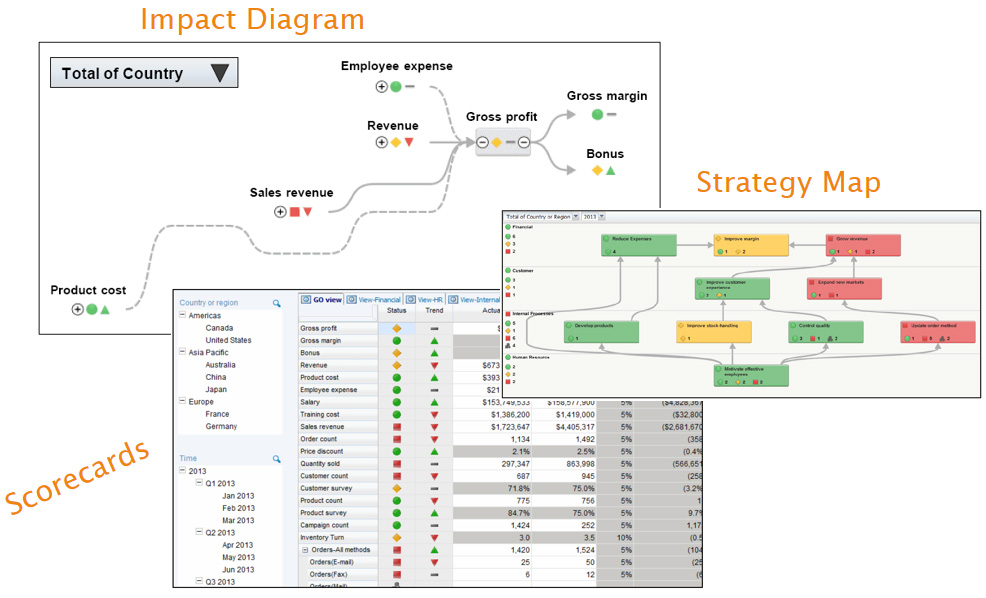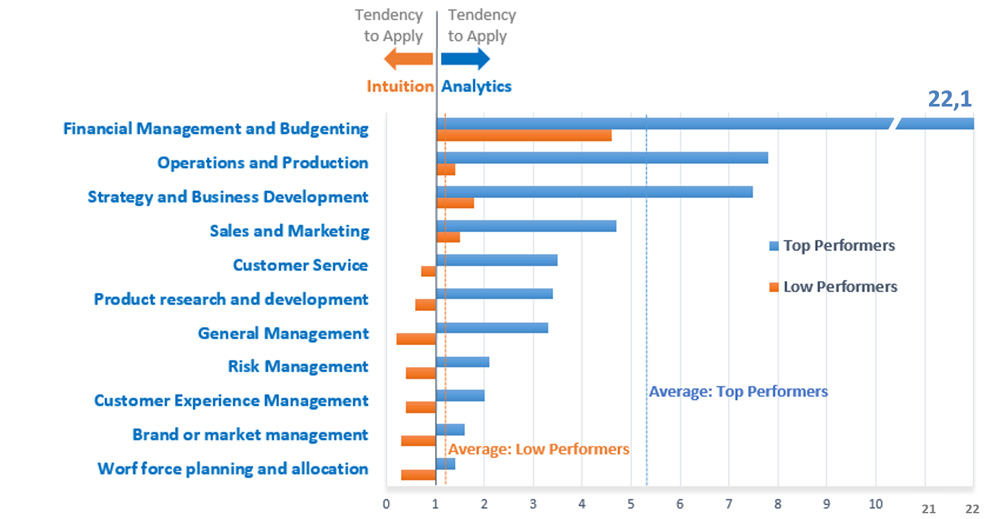The success of an organization is due, among other factors, to its capacity to understand the past, to evaluate the present and to see the possibilities for the future (vision), preparing itself adequately and formulating the ways to reach it (strategies), setting the objectives and goals required.
Setting goals for the objectives, in areas such as commercial, financial, sales, marketing, human resources, among others, is not enough. You must perform actions related to management and business processes to succeed in achieving the goals. To achieve the objectives, it is also necessary to measure, control and monitor the variations and results of the organization’s performance indicators.
These performance indicators are therefore the basis for evaluating the performance of any company and this cycle must be repeated continuously to improve company results.
 In contrast, without definition, control and monitoring of performance indicators and without appropriate tools to manage these key performance indicators, it is difficult to achieve sustainable performance gains. In other words, without control and monitoring the performance of an organization, it is difficult to execute an efficient strategic and operational management.
In contrast, without definition, control and monitoring of performance indicators and without appropriate tools to manage these key performance indicators, it is difficult to achieve sustainable performance gains. In other words, without control and monitoring the performance of an organization, it is difficult to execute an efficient strategic and operational management.
See below a global survey with more than 4,500 executives, managers and business analysts done in 30 market segments and more than 120 countries, including Brazil, demonstrating the competitive advantage of companies using Analytics.

Notes
- Analytics involves the study of historical data to investigate potential trends, to analyze the effects of certain decisions or events, or to evaluate the performance of a particular tool or scenario. It can also advise predictions of the future with machine learning algoritms for example.
- Analytics goal is to improve the business by acquiring knowledge that can be used to make improvements or changes, to help organizations improve their performance
Find out what we can do for your company
